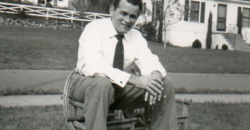convenient truths.
 I’ve written before about giving up the need to be right.
I’ve written before about giving up the need to be right.
But it is a hard, hard thing to let go of, I continue to find. Particularly when you are right. Smile.
This week’s (unsurprising and unsatisfying) admission by Lance Armstrong–and the ways in which he has spent many years attacking and suing and belittling and calling “crazy” those who accused him of doing the very thing he was doing–well, let’s just say I can now understand how those he lied to (and about) must have felt at the time–and how they must feel now. Hollow victory; the damage has been done. And I don’t see Oprah interviewing them to get their side of the story, either. Lance Armstrong is still controlling the narrative he has spun, and continues to spin.
And because he so desperately needs to “control the narrative,” as he says, he pushed away any who could or would dare to dispute the narrative he was controlling. And he lied, continuously, about his own actions–the “narrative” was a narrative of lies and, most likely, he lost sight of what the truth was. And if the narrative he was controlling included intimating that his detractors were crazy or vengeful or had some irrational vendetta against him, or were suffering from high blood pressure or were simply living in a space of drama and irrational victimhood while he was living in a space of choice and opportunity, then there was hardly any space for those who knew to be heard. It is a convenient truth to control the narrative in such a way that any negative reaction to the narrative is discounted.
Here’s what I wrote on Facebook last night:
I guess we all delude ourselves to a certain extent. I know we do. I know I do. We create stories to justify our actions. But wow, you either doped or you didn’t dope. You either ________ or you didn’t _______. Some things have harder edges than others, it seems. Not even right or wrong, but did or did not do. I wonder if we can all just own our actions, without belittling the people who are holding up the mirror to us.
We are beautiful train wrecks, we humans. Even so, it is a convenient truth to control the narrative of your life to the extent that anyone whose narrative differs is wrong. Ultimately, it leaves you all alone. In the extreme, there is no “winning” against a sociopath; there is no holding them accountable. It is an inconvenient truth to have someone raise their hand and say, “hold on, something has changed, let’s talk about this without lying.” It’s not so much the doing I mind; it’s the lying. Let us all live in grace and forgiveness for ourselves that we allowed a sociopath to be part of our lives, and let us give up the need to be right about something so wrong. Even, perhaps even especially, when we are right. And let us fully own our own actions.
This is not really a post about Lance Armstrong; this is a post about us all and some of us in particular.
What “inconvenient truth” are you rebelling against? And what “need to be right” do you want or need to give up? Leave a comment below so we can all learn from each other.
Love,

[Image from Oprah Winfrey Network]







